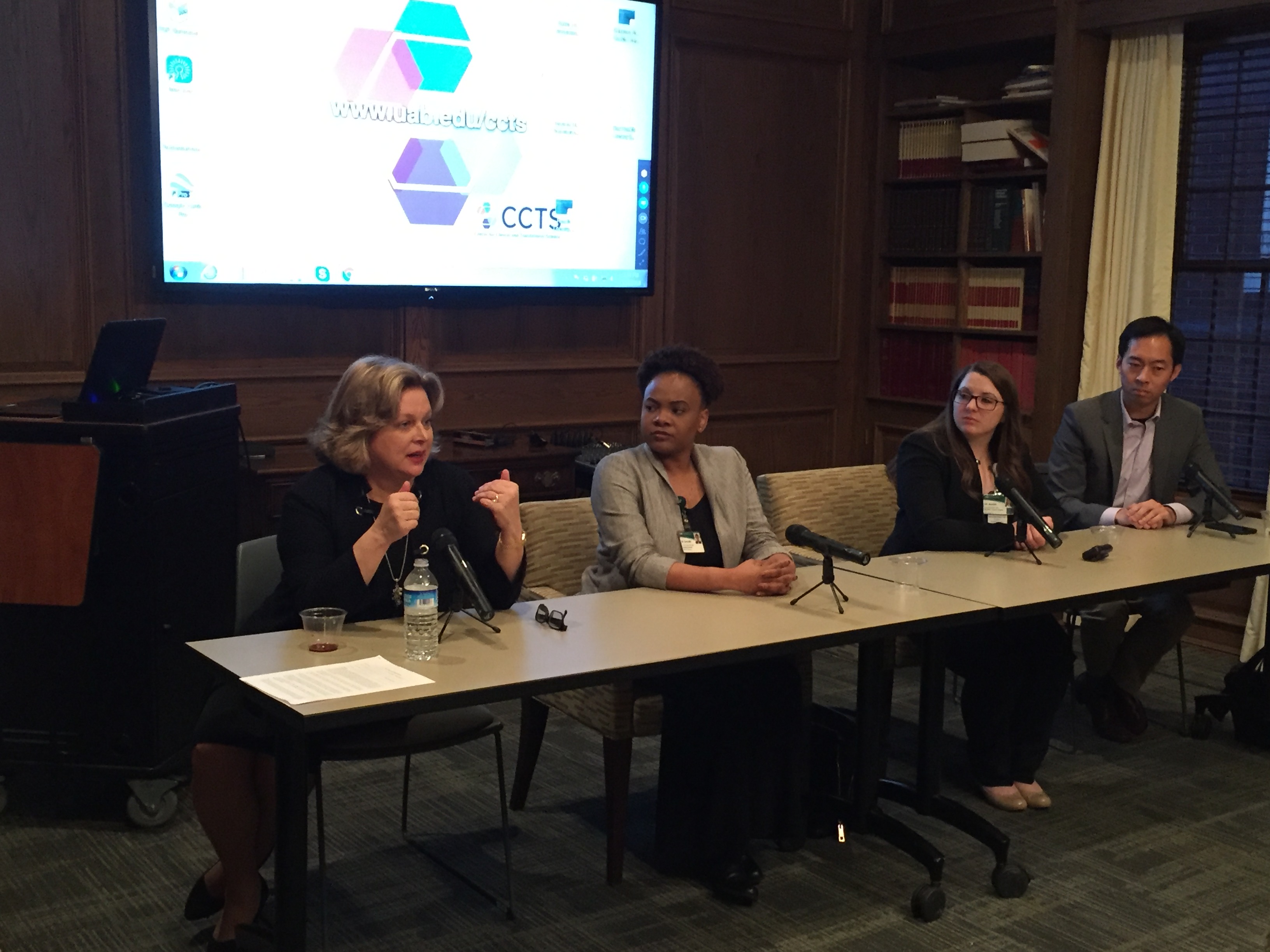
Dr. Joy Deupree, UAB School of Nursing (SON) Assistant Professor and Director of Community Engagement and Robert Wood Johnson Foundation (RWJF) Executive Nurse Fellow, presented an overview of low health literacy rates and associated determinants, in particular for the CCTS Partner Network region of Alabama, Mississippi, and Louisiana, where more than half of all residents are estimated to have low health literacy. "As many as six out of every 10 adults cannot adequately discuss their own health information in a clinical setting or understand discharge instructions and medication labels," she said. Low health literacy is associated with higher rates of adverse drug events, hospital re-admissions, excess hospitalizations, and unnecessary death. Its role in poor outcomes results in "billions spent on unnecessary health care costs."
Contrary to the stereotype that low health literacy is most frequently an issue for people with low SES or who speak English as a second language, Deupree said the largest group with low health literacy is seniors. "Aging correlates to lower health literacy, an important trend given a quarter of all U.S. adults will be over the age of 65 by 2030," she said. Noting it is difficult to predict who may be low health literate, Deupree reviewed the latest tools and techniques for assessing health literacy in clinical and research settings, including the Brief Health Literacy Screening Tool (BRIEF), which is being pilot tested in two UAB clinics. The advantages of BRIEF over other individual assessment tools are that it has only four items and takes less than two minutes to use.
Dr. C. Ann Gakumo, UAB SON Associate Professor and RWJF Nurse Faculty Scholar; Dr. Daniel I Chu, Assistant Professor, UAB Division of Gastrointestinal Surgery and 2018 James A. Pittman, MD, Scholar; and Dr. Samantha Baker, postdoc in the VA Quality Scholars Program, UAB Dept. of Surgery shared insights from their research exploring the impacts of low health literacy and numeracy on disparities in gastrointestinal surgery outcomes, high rates of hospital readmissions in the veteran population, and interventions to improve medication adherence in populations with HIV and high blood pressure. Dr. Robin Gaines Lanzi, Professor of Health Behavior and Director of Student Engagement at the UAB School of Public Health and Co-Director of the Behavioral and Community Sciences Core at the UAB Center for AIDS Research (CFAR), moderated the panel discussion.
The CCTS recognizes the importance of health literacy as it relates to the success of three major goals of the national CTSA program:
- to engage patients and communities in every phase of the translational process
- to promote the integration of special and underserved populations in translational research across the human lifespan and
- to innovate processes to increase the quality and efficiency of translational research, including multisite trials.
Many thanks to Drs. Deupree, Gakumo, Chu, Baker, and Lanzi, for joining CCTS to explore the evidence for and discuss solutions to low health literacy and numeracy challenges. Click here to watch the video of our Feb. Forum. Speaker slides are available on our CCTS Monthly Forum page. Mark your calendar for our next CCTS Forum on Wed., April 4, at 4pm.